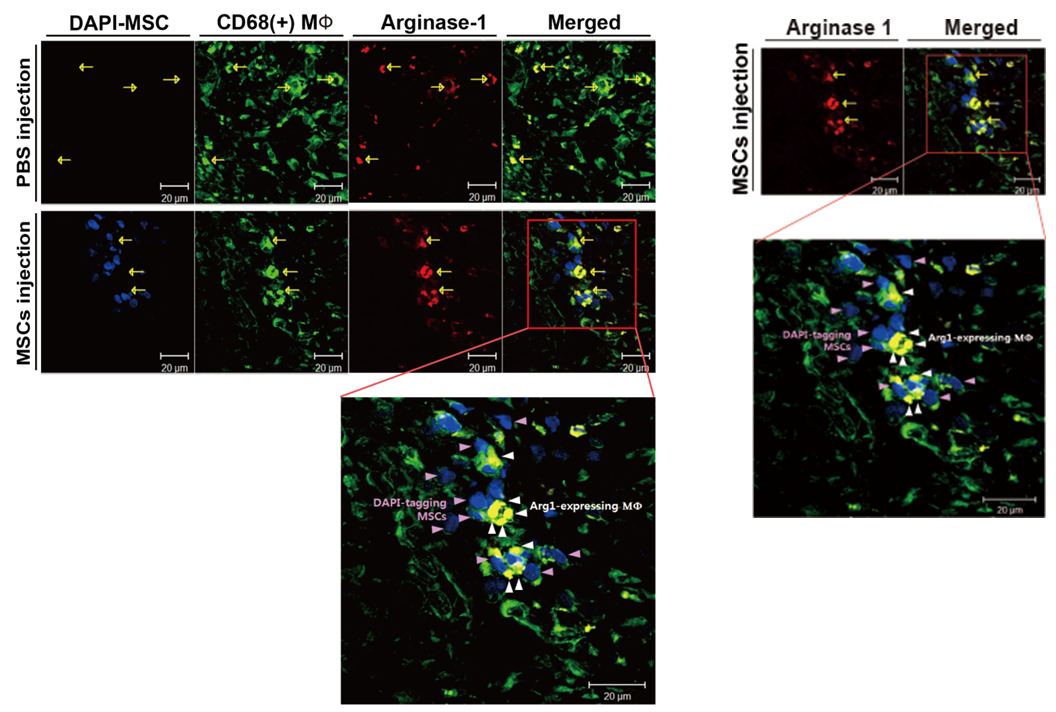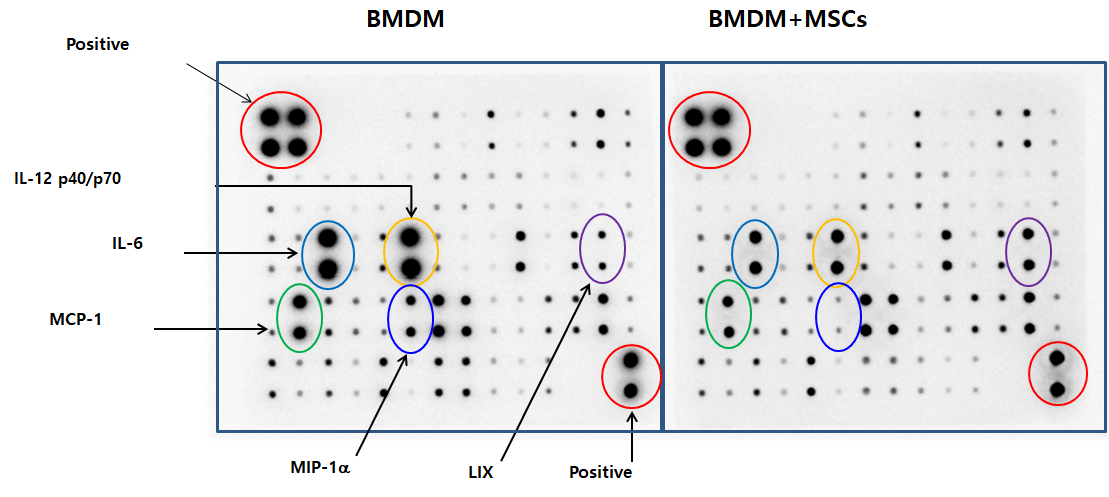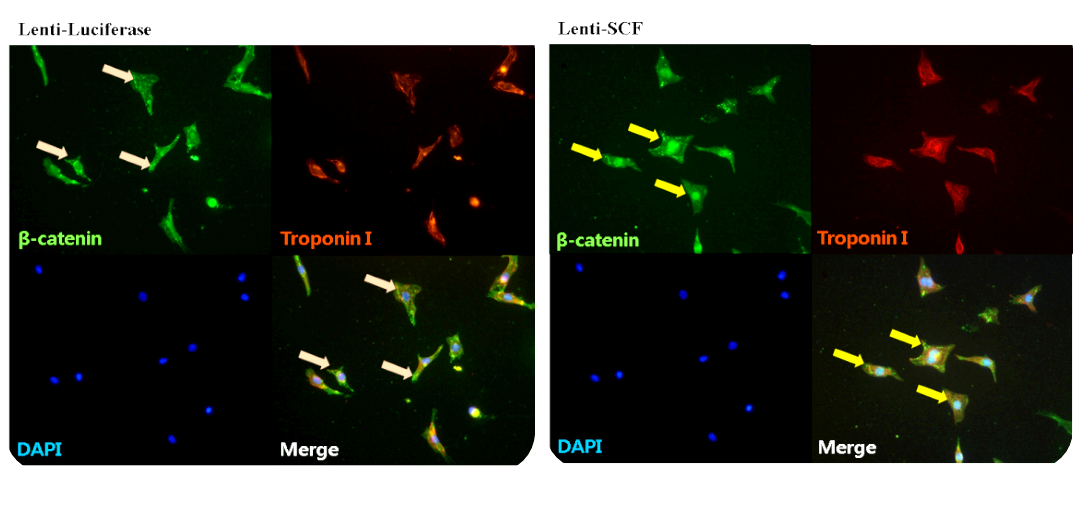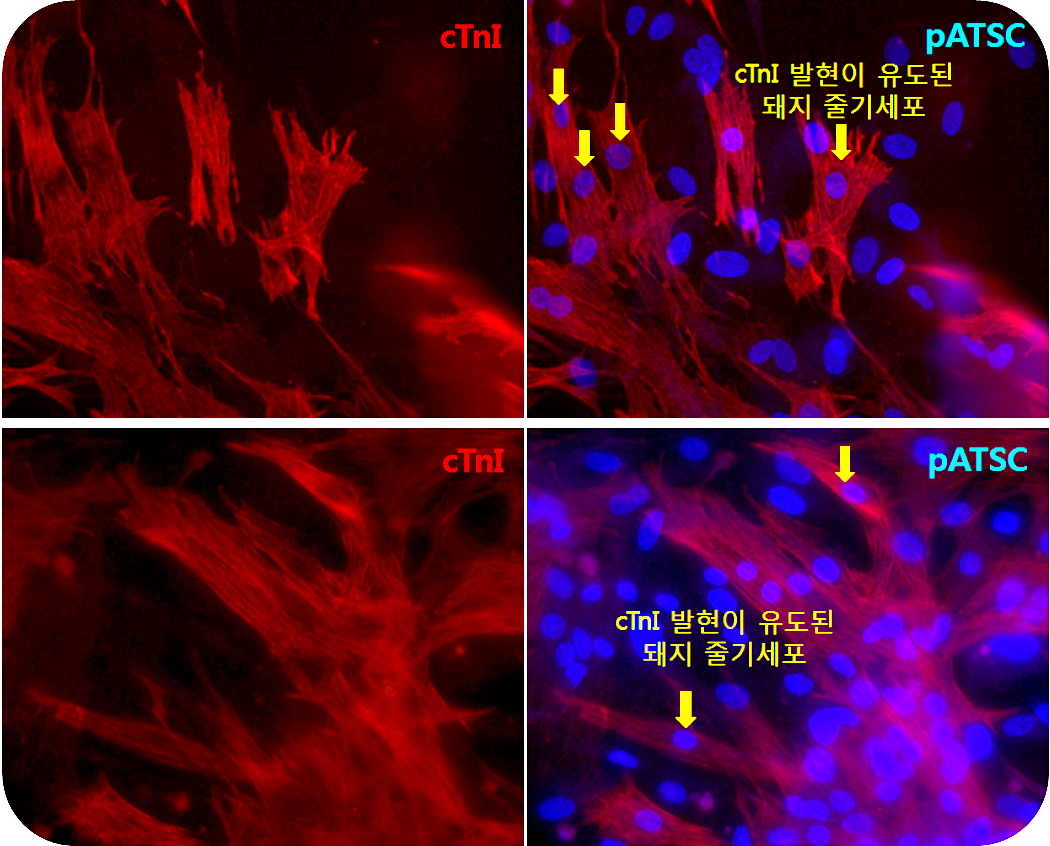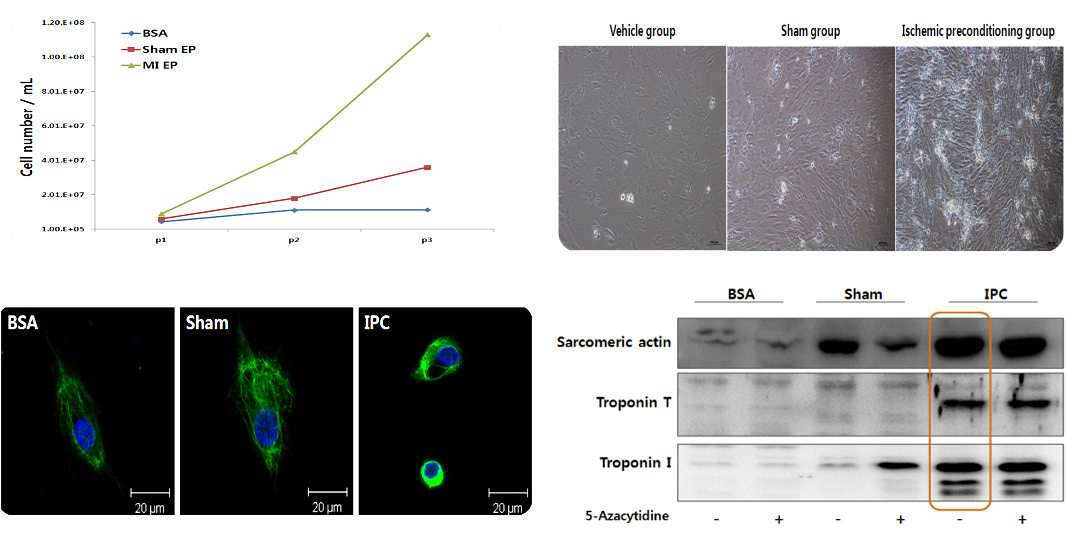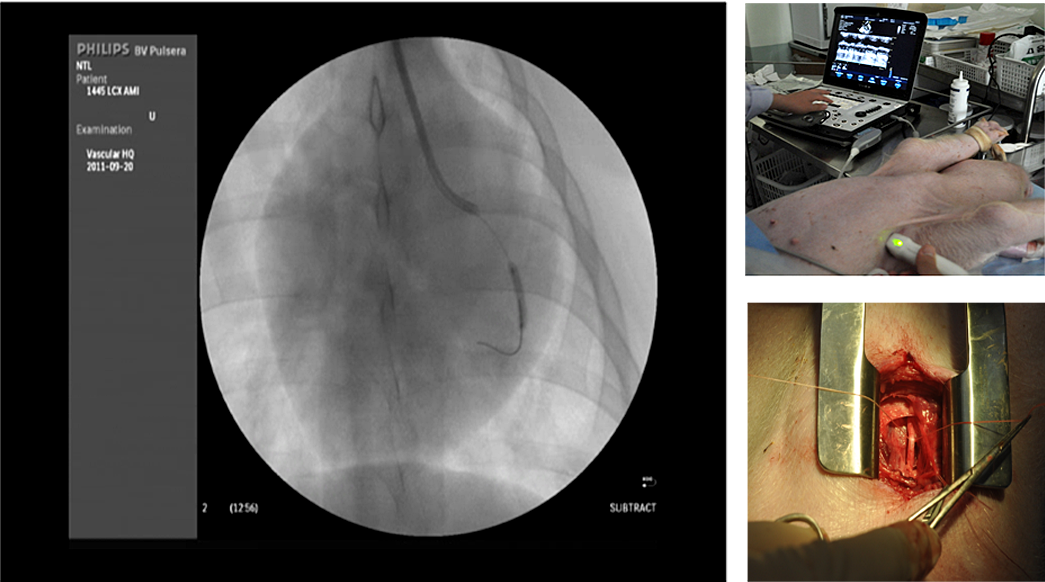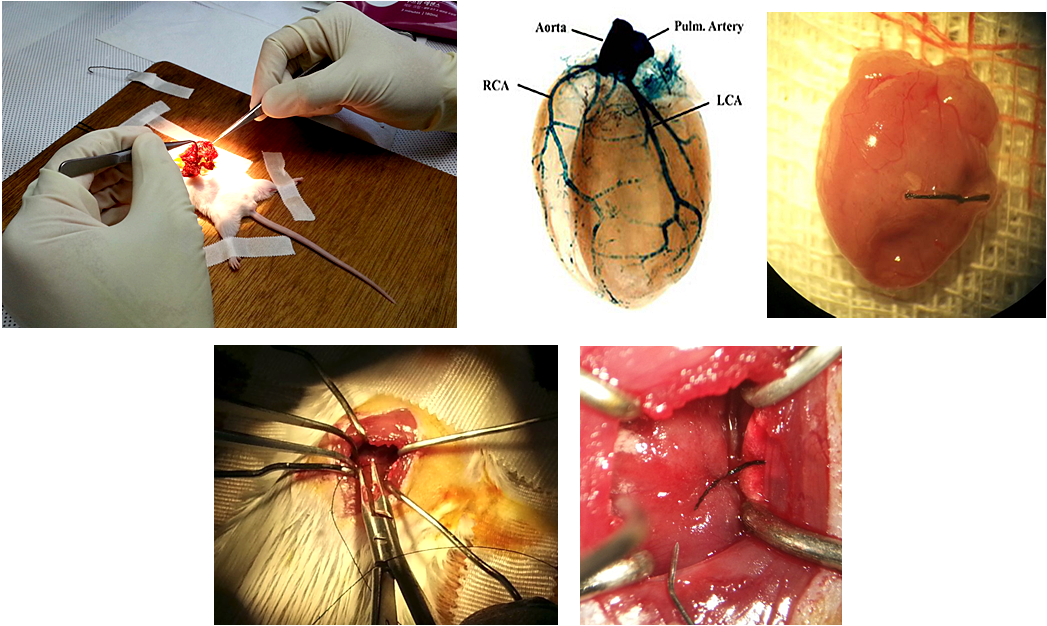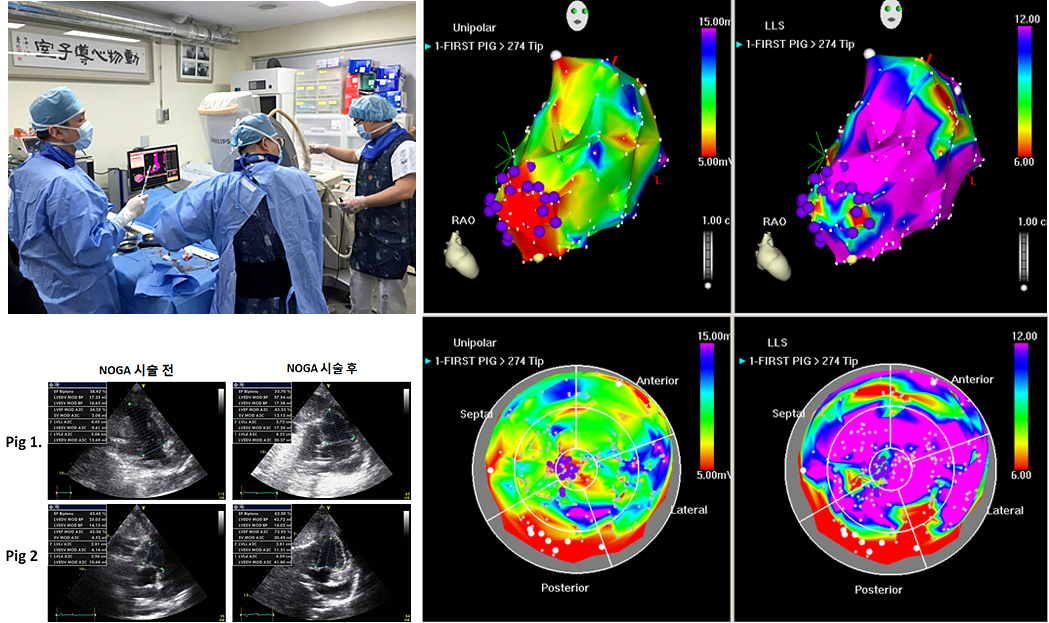전남대학교 세포재생연구센터
-
INTRODUCTION
INTRODUCTION
-
MEMBERS
MEMBERS
-
PUBLICATION
PUBLICATION
-
COMMUNITY
COMMUNITY
-
SYMPOSIUM
SYMPOSIUM
-
GALLERY
GALLERY
-
로그인
INTRODUCTION
INTRODUCTION
Major research goals
Cardiovascular injury involves the loss of cardiomyocytes, pathological fibrosis, and excessive inflammation which result in cardiac
remodeling and dysfunction. Although we have hundreds of clinical therapies that include the standard drugs right now, the prevalence rate of cardiovascular disease shows a striking increase. Regeneration therapy is the hottest topic in medical field and has shown remarkable responses but those responses are quite variable, and can take a long tim to occur. Mesenchymal stem cells (MSC) are regarded as safe and
feasible for cardiovascular therapy in clinical applications. Cardiac function is significantly improved after stem cell therapy, mainly in association with the induction of angiogenesis, the paracrine effect, or stimulation of endogenous cardiac progenitor cells. Despite intense efforts, however, recent multiple meta-analyses have debated whether the therapeutic efficacy of MSC treatment is significant. For cardiac
regeneration, we have established a Cell Regeneration Research Center (CRRC) and cooperated in basic science, medical research, bioengineering to carry out the highly effective and safe regeneration therapy.
Our research center approaches to bridge between the basic scientific evidences and clinical issues, with a goal towards identifying novel
therapeutic targets for rapid translation into clinical medicine. Our lab focuses elucidates the basic mechanisms underlying cardiovascular
disease with the aim to develop new cellular and pharmacological therapies to restore and promote cardiac regeneration in vivo.
1. Currently, our laboratory focuses on cardiac regeneration-related cellular events in cardiovascular disease. Of particular interest are the development cell optimally effective stem cell products for clinical application, the trans-differentiation of stem cell to cardiac cells by using chemical compounds, and the regenerative recovery of pathological cardiac niche.
2. We found that the phenotype modulation of inflammatory macrophages recruited in cardiovascular lesions dramatically contributed to cardiac recovery. We proved this concept by using macrophage-specific vectors and chemical compounds with research articles and patents. More powerful vector for targeting macrophages is developed and tested in animal models.
3. MSC is well known to be hardly differentiated to cardiomyocytes. We screened various compounds, and selected highly effective cardiac inducers. Several candidates are under intensive investigation to verify their safety and efficacy for further clinical application.
4. Besides stem cells, somatic cells are good and sound sources for regeneration therapy. We have already found a effective cardiac inducer for fibroblasts and myoblasts from adult human, and their action mechanisms are under investigation.
1. Development of reliable animal models for cardiovascular disease and equipped stable facilities for preclinical studies including mice, rats, and pigs.
2. Complete equipments of the NOGA XP System, NogaStar Catheter, and MyoStar Injection Catheter to deliver stem cells or drugs to the heart through endocardial route in pig models. This is the first and only NOGA System and trial in Korea.
3. Identification of oxytocin and apicidin as novel inducers for MSC to cardiac lineage cells.
4. Successful modification of macrophage phenotype in the atherosclerosis lesion
5. Integrated amelioration of damaged cardiac niche including cardiomyocytes, vessels, and infiltrated macrophages by using chemical compounds such as 5-azacytidine, and 6-bromoindirubin-3-oxime (BIO).
6. Of seven national research projects chosen by Korea government in our lab, five projects are strongly associated with cell regeneration.
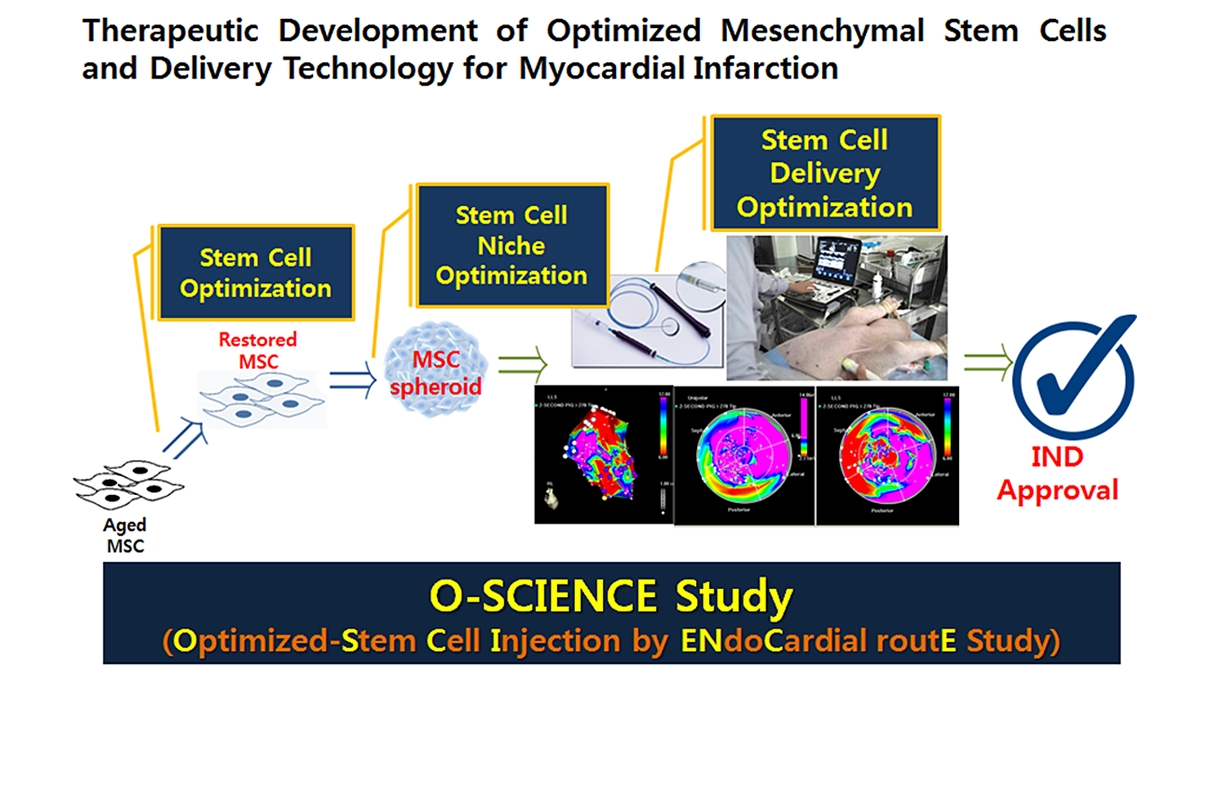
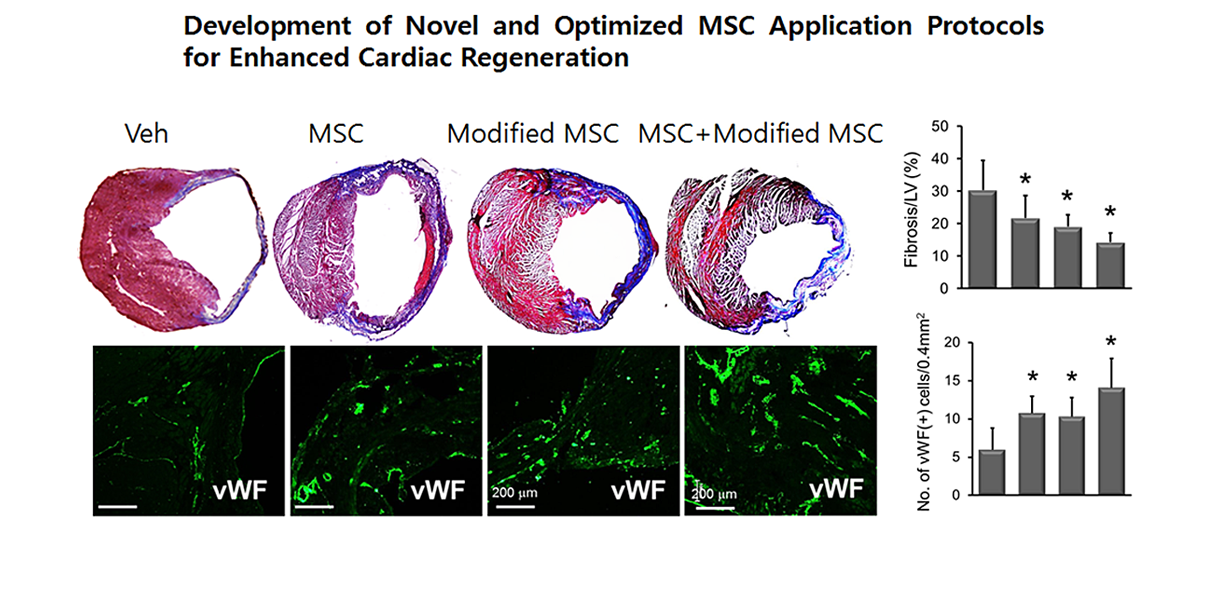
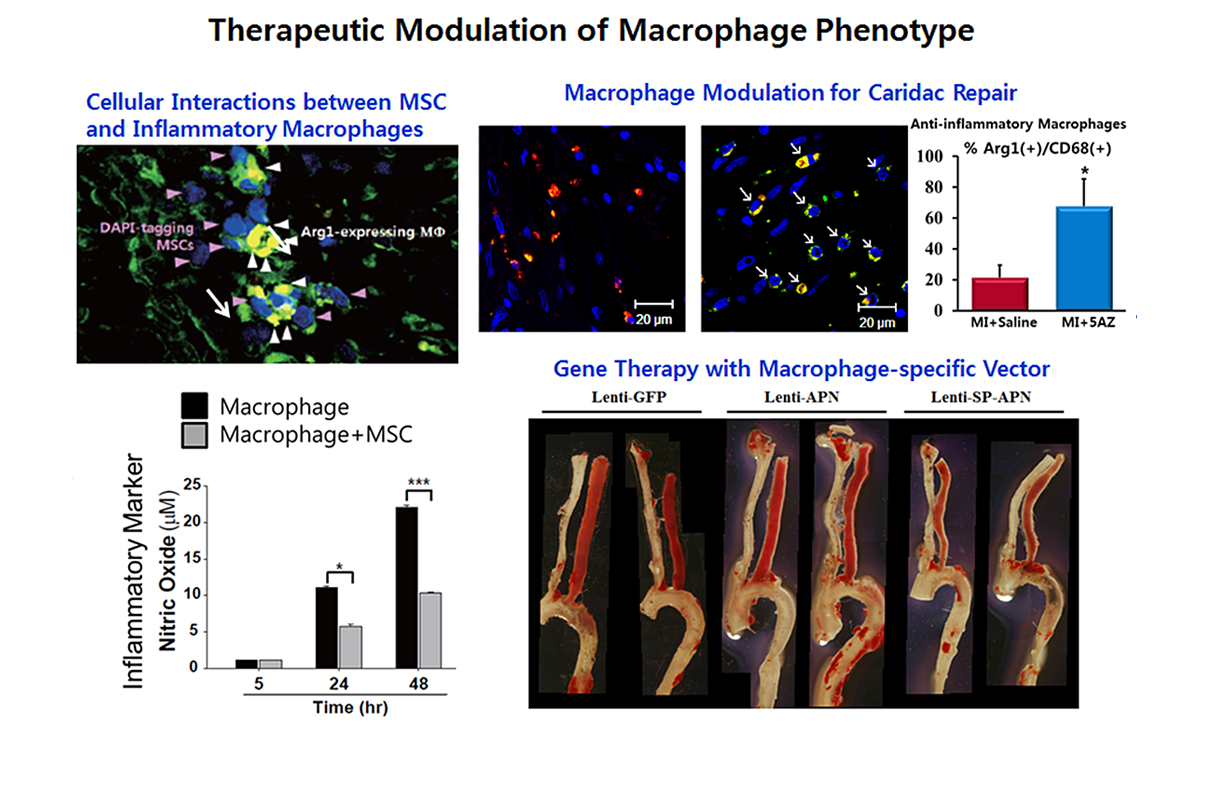
We have organized the Gwangju-Boston Cardiology Research group with outstanding faculties from Korea, USA, Germany, etc. and are having a regular International Gwangju-Boston Joint Cardiology Symposium since 2007. By virtue of active participations, we closely collaborate with leading researchers in the field of regeneration medicine.
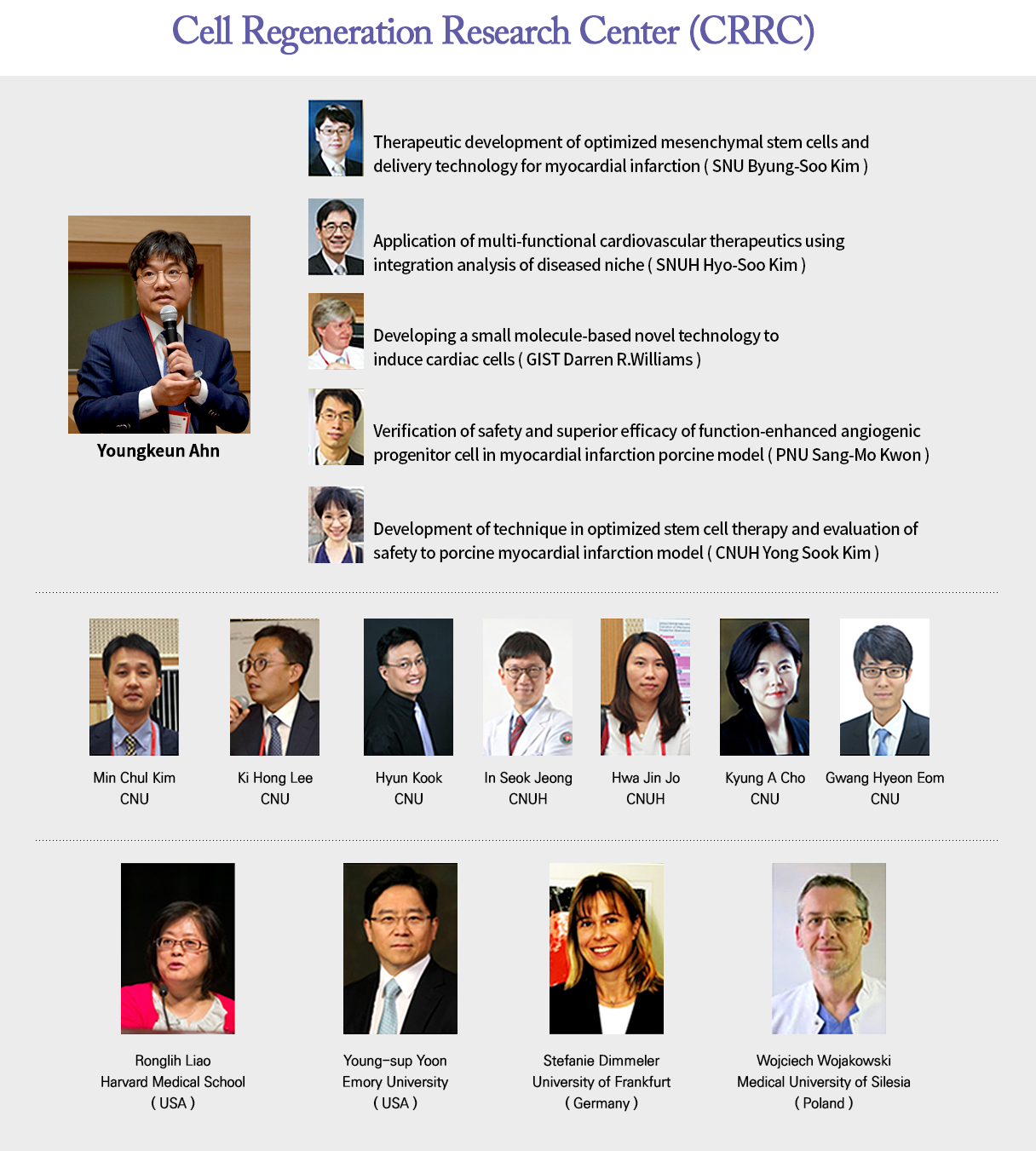
본 심혈관 질환 중개 연구실은 다양한 심혈관 질환의 치료 및 재생을 위한 연구를 진행하고 있으며 약물, 천연물, 유전자 및 줄기세포를 이용하여 손상된 심장 조직의 재생과 회복에 대한 다양하고 새로운 치료기술 개발을 목표로 하고 있습니다.
연구 결과물의 임상적용을 위해 기초연구뿐만 아니라, 소/중동물 모델의 전임상 연구를 수행하고 있습니다. 특히 본 연구기관은 1996년 국내 최초로 돼지 심도자실을 개설하여 돼지 심근경색 모델을 이용한 중개연구와 특정질환 모델 마우스와 렛트를 이용한 전임상 연구를 활발히 진행하고 있습니다. 이러한 연구 기반을 바탕으로 다수의 국책 연구 과제를 성공적으로 수행해오고 있습니다.
